Best Foods for Thyroid Patients


The thyroid gland, despite its small size, has a major influence on metabolism, energy, heart rate, and body temperature. When the thyroid is underactive (hypothyroidism) or overactive (hyperthyroidism), it can affect nearly every system in the body. While medications are often necessary for treatment, the right diet can complement therapy, ease symptoms, and support overall well-being. In this blog, we will discuss the most thyroid-friendly foods and highlight what patients should avoid.
Types of Thyroid Disorders
Thyroid disorders generally fall into two main categories:
Hypothyroidism (Underactive Thyroid)
It occurs when the gland fails to produce sufficient hormones. It often leads to symptoms such as tiredness, weight gain, dry skin, and feeling unusually cold.
Hyperthyroidism (Overactive Thyroid)
When the gland produces more hormone than required, it causes symptoms like weight loss, rapid heartbeat, irritability, and heat intolerance.
Other thyroid conditions include “Hashimoto’s thyroiditis” (an autoimmune cause of hypothyroidism), “Graves' disease” (an autoimmune cause of hyperthyroidism), “thyroid nodules”, and “goiter”. Understanding your type is crucial for managing it with the right diet and treatment.
Best Foods for Hypothyroidism
Hypothyroidism slows down metabolism and often leads to fatigue, weight gain, and constipation. Including certain nutrients in your daily diet can help improve thyroid function.
1. Iodine-Rich Foods (in moderation)
Iodine plays a key role in helping the thyroid gland produce hormones essential for metabolism and growth. However, excessive intake can worsen some thyroid conditions, especially autoimmune thyroid disease.
- Seaweed (nori, kelp)
- Iodized salt
- Dairy products
Also read - Iodine for Brain Development in Children
Note: Speak with your healthcare provider before boosting your iodine intake, particularly if you're taking thyroid medication.
2. Selenium-Rich Foods
Selenium plays a vital role in transforming T4 into the active T3 hormone and helps shield the thyroid gland from harm.
- Brazil nuts (just 1–2 per day)
- Sunflower seeds
- Tuna
- Eggs
- Whole grains
3. Zinc-Boosting Foods
Zinc supports thyroid hormone production and metabolism.
- Pumpkin seeds
- Chickpeas
- Cashews
- Fortified cereals
4. High-Fiber Foods
People with hypothyroidism may struggle with constipation. Fiber-rich foods can promote better digestion.
- Oats
- Beans
- Lentils
- Brown rice
- Berries
- Vegetables
5. Antioxidant-Rich Fruits and Vegetables
These help reduce inflammation and support immune health, which is especially important in autoimmune thyroid conditions like Hashimoto’s thyroiditis.
- Blueberries
- Tomatoes
- Spinach
- Bell peppers
- Carrots
Best Foods for Hyperthyroidism
In hyperthyroidism, the thyroid is overactive, leading to rapid metabolism, weight loss, anxiety, and irregular heartbeat. The goal is to calm the thyroid and reduce symptoms through a balanced diet.
1. Cruciferous Vegetables
These vegetables can help slow down thyroid hormone production when eaten raw or lightly cooked.
- Broccoli
- Cauliflower
- Kale
- Cabbage
- Brussels sprouts
2. Calcium and Vitamin D-Rich Foods
People with hyperthyroidism are at a higher risk of bone thinning.
- Milk
- Yogurt
- Cheese
- Tofu
- Fortified plant milks
- Leafy greens
3. Lean Proteins
Protein helps prevent muscle loss that often occurs in hyperthyroid patients.
- Chicken breast
- Eggs
- Fish
- Legumes
- Tofu
Foods to Avoid for Thyroid Health
Some foods can interfere with thyroid hormone production or the absorption of medication.
1. Soy Products (in excess)
Soy may interfere with thyroid medication absorption. Maintain a gap of at least 4 hours between consuming soy products and taking your thyroid medication.
- Tofu
- Soy milk
- Edamame
- Soy protein powders
2. Gluten (if sensitive or diagnosed with celiac)
Thyroid patients, especially those with autoimmune conditions, are often sensitive to gluten.
- Wheat
- Rye
- Barley
- Processed foods
3. Highly Processed Foods
These are often high in sodium, sugar, and unhealthy fats, which can worsen symptoms like weight gain or heart issues.
- Packaged snacks
- Instant noodles
- Frozen meals
4. Caffeine (in moderation)
May interfere with medication absorption and worsen hyperthyroid symptoms.
- Coffee
- Energy drinks
- Strong tea
Lifestyle Tips for Managing Thyroid Health
- Manage Stress Effectively: Chronic stress can disrupt thyroid hormone balance and worsen autoimmune conditions. Reduce stress through yoga, meditation, and by ensuring adequate sleep and relaxation.
- Prioritize Regular Exercise: Staying physically active boosts metabolism, improves mood, and helps manage weight. For hypothyroidism, opt for walking, swimming, and light strength training, while for hyperthyroidism, focus on calming exercises like yoga.
- Stay Hydrated: Dehydration can worsen fatigue and slow metabolism. Drink 6–8 glasses of water daily, or more if active.
- Get Enough Sleep: Thyroid dysfunction can affect sleep quality. Try to get 7 to 9 hours of quality, uninterrupted sleep each night.
- Don’t Skip Medication: Take thyroid medicine consistently, and never stop or adjust the dose without medical advice.
Ayurvedic Herbs for Thyroid Management
While these herbs do not cure thyroid disorders, they can be used alongside prescribed treatments to improve overall well-being:
- Ashwagandha: Known to help balance thyroid hormones, especially beneficial in cases of hypothyroidism.
- Moringa (Drumstick Leaves): Packed with nutrients and antioxidants that support thyroid health.
- Turmeric & Ginger: Powerful anti-inflammatory herbs that may reduce thyroid-related inflammation.
- Triphala: Supports digestion and detoxification, which is important for hormonal balance.
- Coconut Oil: When used in moderation, it may aid metabolism and energy levels in hypothyroid patients.
Some Ayurvedic formulations also combine these ingredients to naturally manage thyroid function.
Also read - Ayurvedic Medicine for Thyroid
Conclusion
To manage thyroid levels effectively, aim for a balanced diet rich in thyroid-supportive nutrients, stay active, reduce stress, and follow your treatment plan closely. While no food or herb can cure thyroid disorders, making thoughtful dietary and lifestyle choices can make your journey easier and healthier.
Frequently Asked Questions (FAQs)
Q. Can thyroid problems be cured with diet alone?
A. Diet supports thyroid health, but it can’t replace medication. It should complement your treatment plan.
Q. Should all thyroid patients avoid iodine?
A. No, but excessive iodine may harm those with autoimmune thyroid disease.
Q. How are Hypothyroidism and Hyperthyroidism different?
A. Hypothyroidism is an underactive thyroid (slowed metabolism), while hyperthyroidism is an overactive thyroid (increased metabolism). Both require different dietary approaches.
Q. Can I have tofu as a thyroid patient?
A. No, tofu is not recommended for thyroid patients as it can disturb the absorption of thyroid medication.


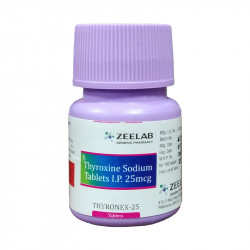
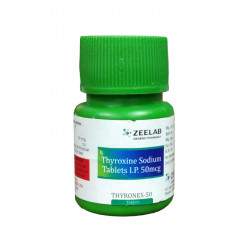

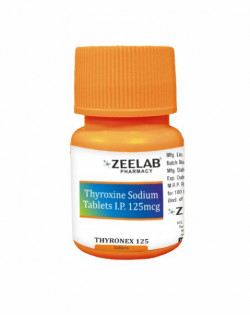
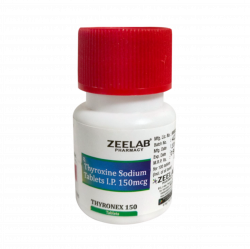
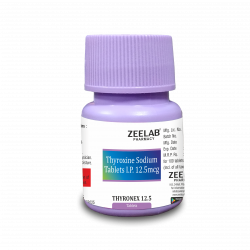







 Added!
Added!